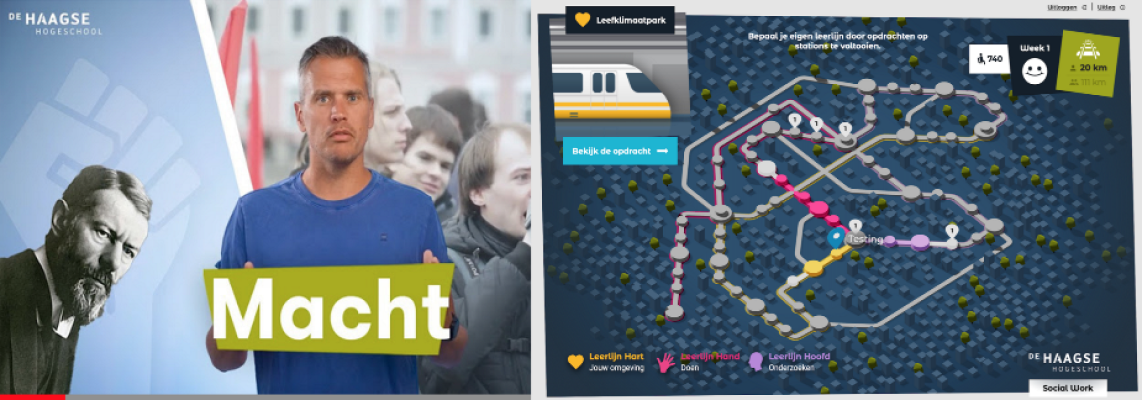Social Work enriches teaching format with gamification and knowledge clips
14 October 2022
Play a game or watch knowledge clips on YouTube. Students in the Social Work degree programme are offered various innovative learning activities to study the subject matter independently, in an activating way. "Self...

Play a game or watch knowledge clips on YouTube. Students in the Social Work degree programme are offered various innovative learning activities to study the subject matter independently, in an activating way. "Self-study becomes more accessible and during lectures there is time for collaborative and in-depth learning," explains degree programme manager Hester Brauer.
The COVID crisis has accelerated the move towards hybrid education, both physical and digital, according to Hester. "We have been working on innovating our education for some time. During the corona pandemic, students and lecturers became more familiar with other teaching formats. With the use of new digital tools, we want to encourage activating learning. This is one of the spearheads of The Hague University of Applied Sciences."
Drawing board
Together with game designer IJsfontein and production house PixelX, Hester sat down to develop games and videos. "Gamification is now a household word in the world of education," affirms project manager Maria de Lange of IJsfontein. "By offering educational content in a playful and fun way, the content is much better absorbed than when students only learn from books."
Underground game
For example, together with the degree programme, IJsfontein developed an underground game, in which students travel virtually by underground to different stops. Every stop is an assignment. By completing the assignments, students earn kilometres, which they use to unlock practice test questions from the lecturer. Maria: "Game elements like competition work very well with students."
Social Work knowledge clips
With PixelX, the degree programme developed knowledge clips, YouTube videos of 6-11 minutes, about complex knowledge topics. Video producer Lisa van der Burgh: "We teach students difficult topics in a fun way. It is a bit like the NOS news clips on channel 3, but about Social Work topics." The speakers in the videos are lecturers from the degree programme. "That creates a sense of recognition."
Mix of learning activities
Hester states that the purpose of these new teaching formats is to create "a mix of learning activities that suit the personal learning strategies, experiences and learning conditions. It provides flexibility in the pace, location and format. "By providing students with the accessible theoretical knowledge at home, the lecturer has room to teach the content in-depth and students can work and learn together."
Research
The Sustainable Talent Development research group is researching this development. Hester: "Two lecturers have started a broad research project on the benefits of gamification and are conducting participatory action research aimed at concrete changes in teaching practices. Because lecturers do, of course, have to switch to a new way of teaching." If they are interested, the results will be shared with other THUAS degree programmes.
Curious about the knowledge clips? Watch an example via YouTube.